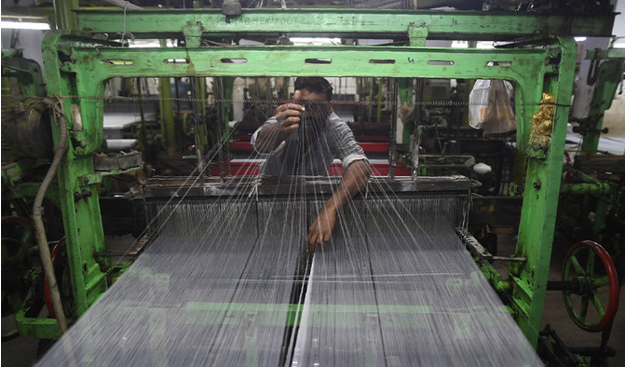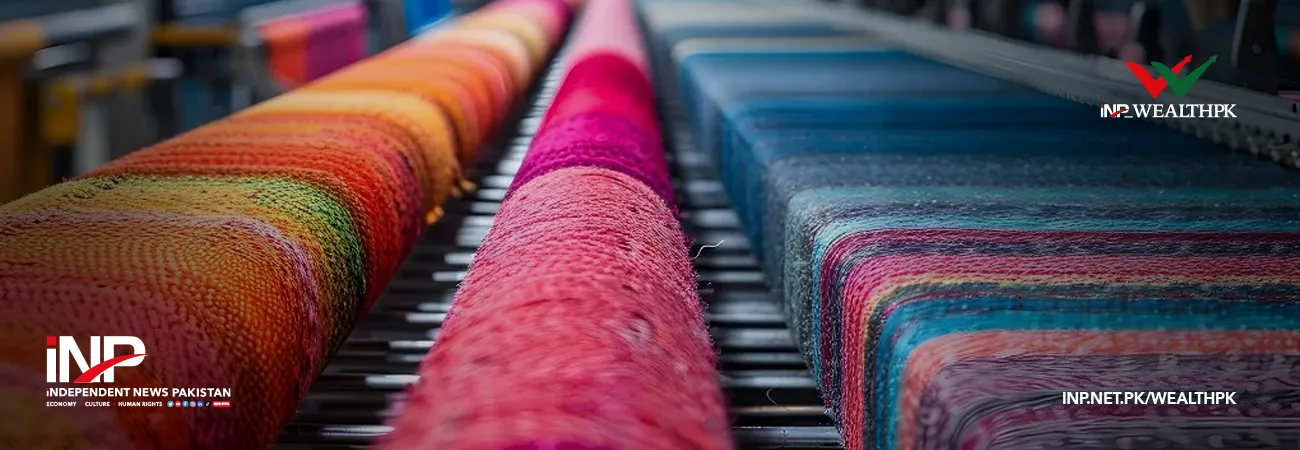INP-WealthPk
Moaaz Manzoor
The Pakistani government plans to strengthen the implementation of the proposed Textile and Apparel Policy 2025–30 through an institutional mechanism under the Ministry of Commerce (MoC) to ensure effective coordination, monitoring, and evaluation of policy interventions across the textile value chain.
According to the draft policy available with Wealth Pakistan, the Ministry of Commerce will revive and reconstitute the Federal Textile Board (FTB) to oversee and review implementation progress. The FTB, chaired by the Federal Minister for Commerce, will submit biannual reviews to the National Export Development Board (NEDB), which is chaired by the Prime Minister and includes representation from federal ministries, provincial governments, and the private sector.
The Textile Wing of the Ministry of Commerce will be responsible for overseeing the implementation of the Textile and Apparel Policy. To ensure an inclusive and participatory process, three sector-specific councils—established under the previous Textile and Apparel Policy 2020–25—will be engaged to oversee implementation, deliberate on sectoral issues, and provide proposals or recommendations for their resolution.
The Ministry will also empower these sectoral councils by establishing a dedicated secretariat and providing the necessary resources and advisory support to align their activities with national export goals. It may notify additional councils based on need analysis and the export potential of sub-sectors. Furthermore, the policy underscores the importance of ensuring long-term predictability on key indicators such as energy costs, taxation, exchange rates, and financing costs, enabling textile and apparel exporters to hedge against various sources of risk.
The institutional framework aims to strengthen coordination between the Ministry of Commerce, the National Export Development Board, and the sectoral councils, ensuring that implementation remains aligned with national export and industrial policy objectives. The Textile and Apparel Policy 2025–30 envisions a competitive, sustainable, and value-added textile industry that drives export growth, job creation, and economic resilience. Establishing a coordinated implementation mechanism under the Ministry of Commerce is seen as critical to achieving these long-term goals.

Credit: INP-WealthPk









